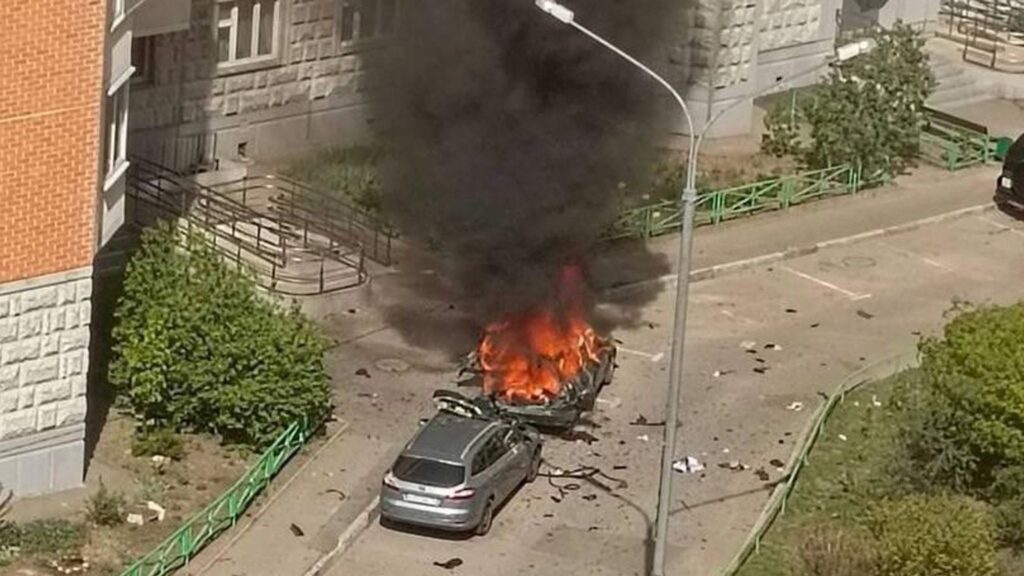A top Russian military commander was killed Friday in a car bomb explosion just outside Moscow, in what authorities describe as the second high-profile assassination targeting a senior Russian officer in four months.
Lt. Gen. Yaroslav Moskalik, a deputy chief in the General Staff’s main operational department, died when an explosive device detonated inside his vehicle in the city of Balashikha, east of the Russian capital. Russia’s Investigative Committee confirmed his death and said the bomb had been packed with shrapnel to maximize damage.
Footage circulated by local media showed a car engulfed in flames in the courtyard of a residential building, as investigators cordoned off the area and combed through debris. The committee’s spokesperson, Svetlana Petrenko, confirmed that forensics experts and bomb technicians were on site.
Though no suspects were officially named, Russian Foreign Ministry spokesperson Maria Zakharova quickly blamed Ukrainian intelligence services. “There are reasons to believe that Ukrainian special services were involved in the killing,” Zakharova said, without providing evidence. She added that if confirmed, the killing would prove Ukraine’s “barbaric and treacherous nature” and its intention to escalate the war rather than seek peace.
Kremlin spokesperson Dmitry Peskov echoed her claims in an interview with Russian state TV, accusing Kyiv of continuing “terrorist activity on our soil.” Ukrainian officials have not commented on the incident.
Friday’s assassination comes just four months after the killing of Lt. Gen. Igor Kirillov on December 17, 2024. Kirillov, who led Russia’s Radiation, Biological and Chemical Protection Forces, was killed when a bomb hidden inside an electric scooter detonated outside his apartment building. His assistant also died in the blast. At the time, Ukraine’s security service acknowledged responsibility for that attack, claiming it was part of targeted operations against senior Russian military planners.
The latest explosion raises new concerns about internal security in Russia’s capital region and highlights a trend of high-risk targeted attacks against senior officers as the war with Ukraine drags into its third year.



